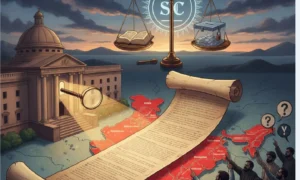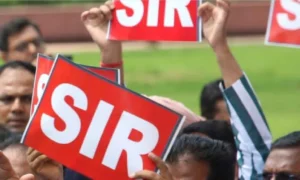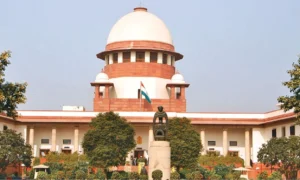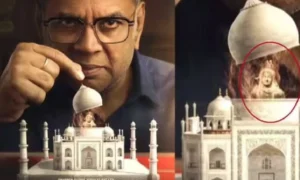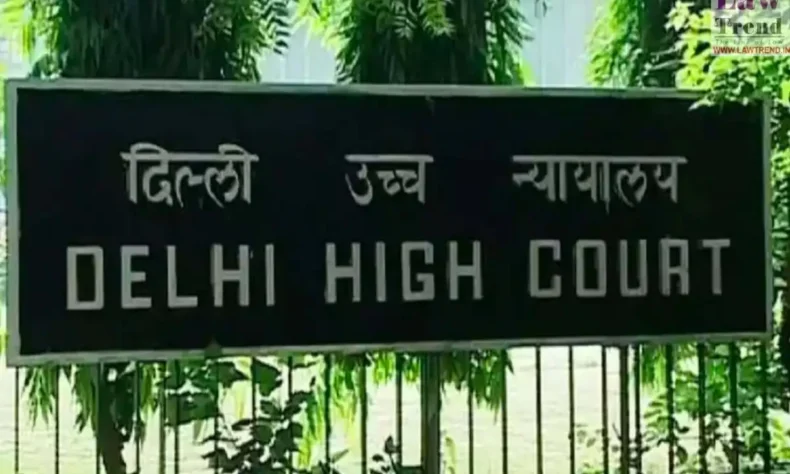
A tribunal constituted under the Unlawful Activities (Prevention) Act, 1967, presided over by Justice Sachin Datta of the Delhi High Court, has upheld the Central Government’s notification declaring the Jammu and Kashmir Ittihadul Muslimeem (JKIM) as an “unlawful association.”
The government notification, issued on March 11, 2025, under Section 3(1) of the Act, was subjected to judicial scrutiny in accordance with statutory requirements, culminating in the tribunal’s detailed order dated September 3. The decision represents yet another judicial endorsement of the Union Government’s efforts to curb separatist and secessionist tendencies in the region of Jammu and Kashmir through the statutory mechanisms provided by the UAPA.
The Union Government’s case rested on the contention that JKIM, led by Masroor Abbas Ansari, has been functioning as a separatist organisation with overt and covert backing from Pakistan. It was argued that the organisation has played a sustained role in nurturing and disseminating secessionist ideology in the Union Territory.
The government alleged that JKIM, under its present and past leadership, consistently engaged in conduct calculated to promote disaffection against the sovereignty and integrity of India. This was purportedly accomplished through the organisation of street protests, the orchestration of public demonstrations, the repeated raising of anti-India slogans, and the active propagation of narratives centred upon the so-called “right of self-determination” and the demand for a plebiscite in Jammu and Kashmir.
Such activities, according to the Union Government, not only undermine the constitutional position of the Union Territory as an integral part of India but also serve the strategic objectives of external actors inimical to India’s national security.
In support of these assertions, the government placed before the tribunal a series of First Information Reports (FIRs) and other investigative materials that, in its view, demonstrated the unlawful character of the association. These included instances where speeches and interviews by JKIM leaders were said to have incited disaffection, alongside records of organised protests and slogan-raising events which, according to the authorities, directly questioned India’s sovereignty over Jammu and Kashmir.
The evidentiary material was adduced not to prove criminal culpability—an issue reserved for trial courts—but to establish that the association’s overall activities fall squarely within the ambit of “unlawful activity” as defined under the UAPA.
In its adjudication, the tribunal emphasised that the statutory threshold for declaring an organisation “unlawful” does not necessitate evidence of militant or terrorist activity in the conventional sense. Rather, it is sufficient if the organisation’s actions, programmes, or advocacies are directed towards bringing about the cession or secession of a part of Indian territory, or if they otherwise incite disaffection against India.
The tribunal, while carefully considering the FIRs and materials placed on record, reiterated that its role is limited to determining whether sufficient cause exists to sustain the government’s notification. It is not the function of the tribunal to deliver findings on guilt or innocence, nor to evaluate the admissibility of evidence in a criminal trial.
Instead, the inquiry is of a preventive and regulatory character, intended to assess whether an organisation’s continued functioning poses a threat to the sovereignty and integrity of the nation.
After an appraisal of the available material, the tribunal concluded that there exists ample justification for continuing the ban on JKIM as an unlawful association. The tribunal noted that the pattern of conduct attributed to the organisation—including the deliberate dissemination of secessionist ideology, the organisation of mass demonstrations challenging India’s sovereignty, and the symbolic assertion of a right to self-determination—constitutes sufficient cause to warrant its proscription.
The tribunal further held that the invocation of the proviso to Section 3(3) of the UAPA by the Central Government, which permits immediate effect to a notification without awaiting confirmation, was fully justified in the present circumstances, given the gravity of the threat posed by the organisation’s activities.
📰 Crime Today News is proudly sponsored by DRYFRUIT & CO – A Brand by eFabby Global LLC
Design & Developed by Yes Mom Hosting

